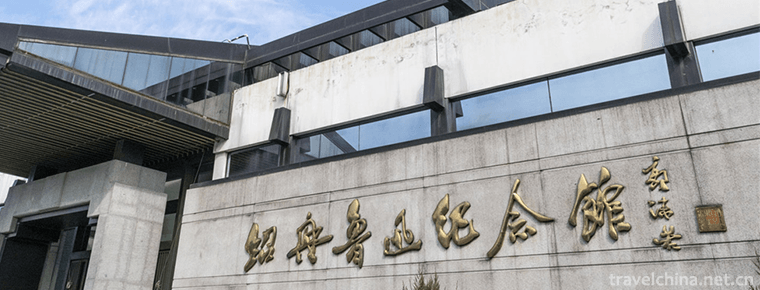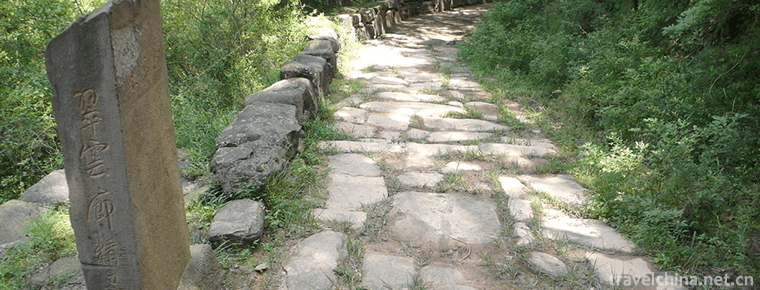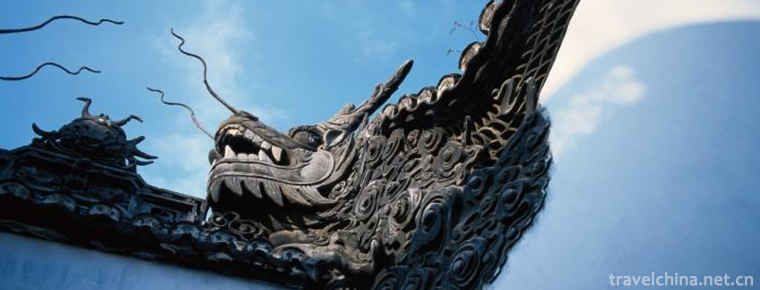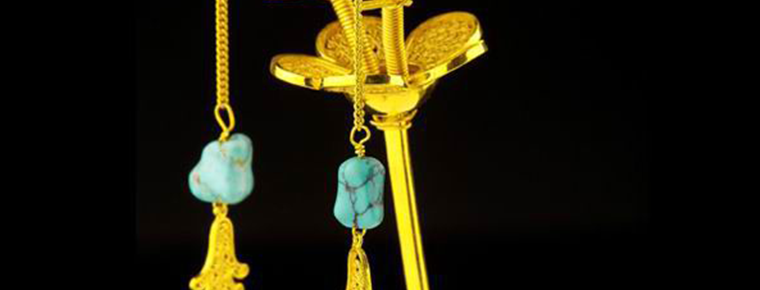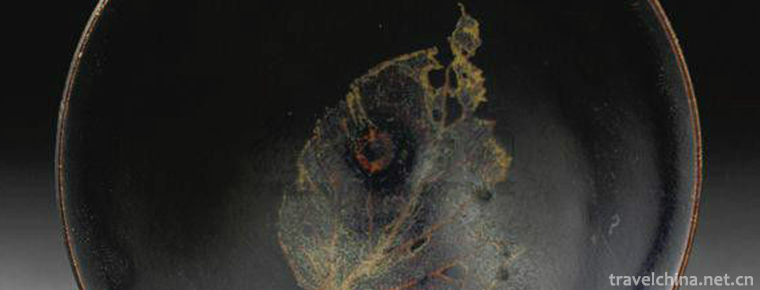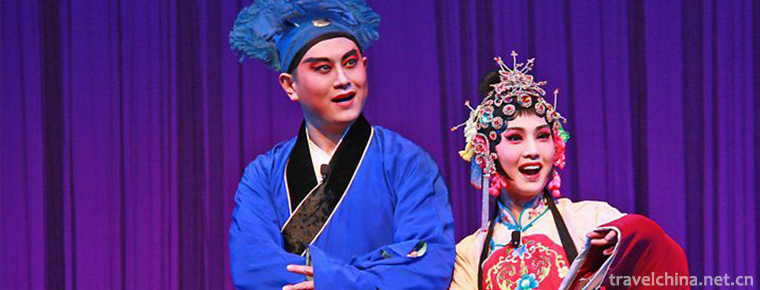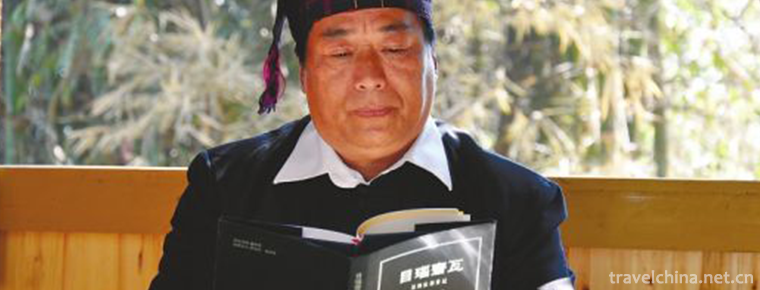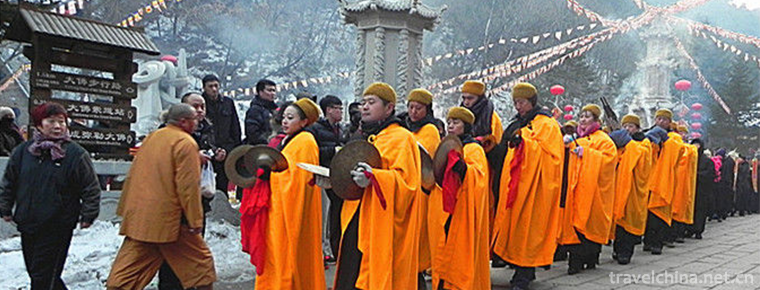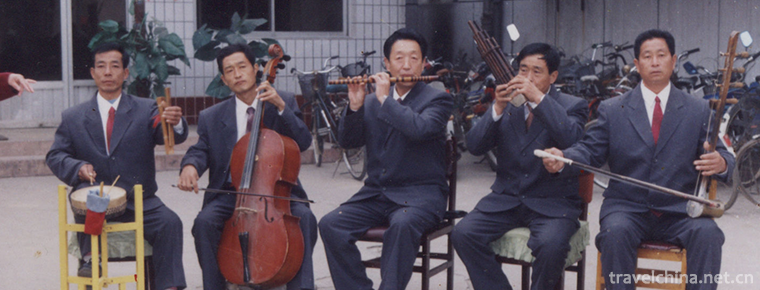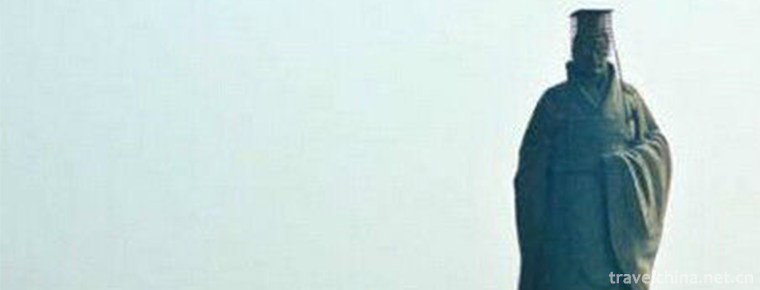Two clip string
Two clip string
Two chords, also known as the "big five tones" by the masses. One of the traditional Chinese operas. It is mainly popular in Western Shandong, Eastern and Northern Henan, northern Jiangsu and Northern Anhui Province. Because its accompaniment instrument, Sihu (four-stringed huqin), is a horsetail orchestra with two strings, its popular people call it "two strings, big five tones" according to their dialect habits. It is closely related to the "four strings" (also known as "Yigou", "Hexi Liu", "Habu") that are popular in Liaocheng, Dezhou and Binzhou areas north of the Yellow River.
On June 7, 2008, the "two-fold string" jointly declared by Dingtao County of Shandong Province, Bozhou City of Anhui Province, Kaifeng City of Henan Province and Huaxian County was listed in the second batch of national intangible cultural heritage list with the approval of the State Council.
historical origin
Embryonic stage
The two chords were developed and evolved on the basis of the popular folk art form "flower drum and lilac" in the southwest of Shandong Province. "Flower Drum and Clove" is mainly popular in the southwest of Shandong Province, which is named for the frequent performance of "Clove Succession" (Zhang Lang Succession). "Flower Drum Clove" was also popular in Heze in the middle of Qing Dynasty at the latest. Its singing form was mainly "sitting on a bench" (solfeggio) or "playing a floor stall" (simple make-up singing), using only one hand bracelet, a bangle, a belly flower drum on the waist side, without silk string accompaniment. Commonly used tunes are: Zanzi, , , , , [flat tune], , and so on. In addition to Xiuxiao, there are dozens of performances such as Standing on the Flower Wall, Liang Zhu Xiashan, An'an Sending Rice, Lu Meng Zheng Chai, Xiaoguxian and Wang Dingbao Yongdang.
In the early years of Xianfeng in the Qing Dynasty (1851), there was a poor and talented Baidian Jade in Yinma Collection (now Shandong Juancheng County) in Puzhou, Shandong Province, who was good at poetry, melody, love flower drums and lilacs, often compiled some new words of flower drums and taught his wife to sing. Later, he only accompanied the Flower Drum Song with a bulging waist drum festival. He was very bored. He often thought of adding silk strings to strengthen his voice. His wife often hums when she spins cotton, and then spins and draws cotton with "buzz, buzz and buzz". The sound of spinning wheel becomes the natural accompaniment of singing. Bai Xiuchi is deeply inspired. After many experiments, he finally makes "strings" like erhu as his wife's accompaniment, which has a harmonious rhythm and greatly enhances his color. Bai Dianyu, on the basis of flower drums and lilacs, compiled the lyrics and sang in solfeggio, breaking through the rhythm norms of the original tune according to the meaning of the lyrics, and integrating them into the singing of other sister arts, won the favor of the broad audience. Bai Dianyu collected three beggars as apprentices in Yinma. They are Li Ji'an of Shenxian County, Qi Chengxing of Dongping County and Mei Fucheng of Jining County.
In the eighth year of Xianfeng (1858), when Puzhou was hit by floods, Li Ji'an returned to the north, Baidian Jade brought Qi and Mei Ertu, begged to settle in Daxuzhuang, northeast of Caozhou (now Heze). Later, Qi and Mei gathered dozens of apprentices in Daxuzhuang. They sold and sang in the countryside of Heze, Juye, Liangshan and Dongping. During this period, due to the increase of personnel, it gradually developed from one solo singer to seven or eight sub-contracted corner-catching forms. Its genre also changed from rap-style narrative style to opera-style endorsement style, with a more complex performance program, singing more complete opera stories. Besides a belly drum, its musical instrument added silk strings (two strings of "strings"), and one more. Faced gongs, a bangle. The two-stringed opera is initially wrinkled.
mature period
During the Tongzhi reign of the Qing Dynasty (about 1864), Wei Jinyu, Gong Sheng, from Weitang Village, southwest of Caozhou City, hired Qi Chengxing and Meifu to become teachers, and set up a two-stringed playmate class in the village. Then, taking advantage of the opportunity of celebrating Mrs. Wang's Zhenjie Memorial Hall in the village, on the stage built by four Taiping cars, he performed "An An An Sen Mi", which was the beginning of two-stringed troupes stepping onto the stage. Qi Chengxing and Mei Fucheng often use Pufans as simple props in their singing. The masses give them the artistic titles of "Dapu Fan" and "Erpu Fan".
During this period, the two-string operas were still singing leisurely by the peasants. The peasants were busy and scattered, and there was no strict class system, and their singing voice was not bound by "style" and "rules". This characteristic of mobility and freedom, coupled with the artists'strong desire to turn their folk songs into "grand operas", has enabled them to absorb a large number of advantages of other arts and develop rapidly. In the aspect of singing, they are all influenced by local folk songs (such as rowing tune, beating you with eight sticks, big sawing jar, etc.), opera (such as Shandong Qinshu, Shandong drum, pendant, etc.) and opera (such as Shandong Bangzi, Liuzi opera, Daping opera, etc.), which make them more and more abundant. In the aspect of performance, they learn and draw lessons from other opera formulas.
In 1853 (the third year of Xianfeng in Qing Dynasty), while striving to improve the performance quality, the musical instruments were also reformed. In order to increase the volume of the main chord, they increased the two strings on the original "string" (similar to Erhu) to four strings, and the one on the bow to two strands, which is the "four hu" (also known as the four strings), which is still used as the main chord. Later, "Wenyue" added Pipa and Erhu, and "Wuyue" added gongs, cymbals and hall drums, which were mostly used to "get through" before the opera began. However, the form of performance is still relatively simple, with few personnel. Artists often say, "Six people catch the blindness." Musicians often play several instruments by themselves. Clothing props are also very few. In a class, there are only one pleat, two shirts, an official dress, a veil cap and other "wardrobes". Most of the performances are "three small" (i.e., jokes, clowns) as the leading role of life drama. Such as: An An Send Rice, Xiu Clove, Xiaoguxian, Lanqiao Club, Wang Hanxi Borrow New Year, Tie Dolls, Station Wall, Change Families, Liang Zhu Xiashan, Lu Meng Zheng Chai Zhai, Baoling Brand, etc. So far, the two-string opera gradually matured.
At the same time, Li Ji, another disciple of Bai Dianyu, who lives in Xinxian and Linqing areas north of the Yellow River, although he also receives apprenticeship, absorbs little nutrition from other arts. His music cards and slabs are basically Bai's first biography, which is not as euphemistic and delicate as the two-chord singing tune of "Dapufan" in Caozhou (Heze), and is easy to express all kinds of feelings. Among them, because of the regional relationship, the audience called the two chords in the north of Juancheng and the area of Xinxian as the two chords in the northern Ci and the two chords in the area of Caozhou (Heze) as the two chords in the southern Ci. Southern Ci has developed rapidly from artists to Anyang, Xinxiang, Kaifeng and Shangqiu in Henan Province. After Li Ji'an, only Wang Guande and Wu Zhixiu of Juancheng have a slight fame. Wang Ziduan, a famous actor in Northern Ci, is famous for singing "Wang Po Curses Chicken". He speaks freely and smoothly, and can sing more than 200 sentences in one breath. He is known as "Weng Tian Shan".
Playmate schedule
In the early years of Guangxu (about 1875), Qi Chengxing and Mei Fucheng again received apprenticeship in Zhangwan Village, Dingtao County. They taught play classes and later became famous as Wang Yuhua of Danjiao.
In the spring of 1878, Qi Chengxing's two chord troupes were invited to perform the family drama at the Grandma's Temple Conference in Dongguan Mountains, Heze. At that time, they sang for four consecutive days. Caozhou prefecture, County decrees and other officials all watched the performance and appreciated silver 52. Since then, the two chords from the village stage to the city stage.
In 1880, Liu Dahuan, Zhang Hatong, Xu Xuyan, Wang Yuhua and Zhang Hatong's apprentices Xu Guangsi (Daxuzhuang), Xu Guangyuan (Daxuzhuang), Ma Tiancang (ugly, artistic name Ma Laoping, Luling Town of Heze) and Xu Qijing (Sigu, Daxuzhuang people) of Liu Dahuan entered Kaifeng, a big city in eastern Henan Province, which was relatively remote at first. The performance in the remote Town God's Temple was very popular and moved back to the prosperous market of Xiang Guo temple. The local people called it the two string.
The age of the class
Around 1910 (Xuantong 2 years), Wang Yuhua (Danjiao) organized the first two-chord professional class club "Hongxing class" in Ma Lou area of Cao County to perform for business. The price of the play was 800 copper per day. During this period, according to the specific conditions of the two chords, the division of labor between Sheng, Dan, Jing, Du and Ugly was meticulous and clear, which changed the situation that the "three small" monopolized the two chords stage in the past. In order to enrich the repertoire, there were rehearsals of public-case drama (such as "Broken Palace of the Qing Dynasty"), gongjia, martial arts drama (such as "Nine Nu'an"), Liantai opera (such as "Jin Bracelet Yuhuan Ji"). Xu Guangsi also took Cui Lanqin (artistic name "Big Golden Teeth") and Erni Bigfoot (Juancheng people) as apprentices in Cao County around 1911, and trained the first generation of actresses with two chords. Their graceful and gentle singing and graceful dancing soon stirred Heze, Cao County, Kaifeng, Shangqiu and other cities. Around 1925, Xu Guangsi accepted Zhang Xiuxiang, wife of beggar Huang Errun (Dongming County), who was famous for her role in "Standing on the Wall of Flowers". Because she was wearing white boots when she first appeared, the audience gave the title "Big White Boots" (later called "Old White Boots"). She was the mother and master of Huang Yunzhi, the later famous actress.
In 1928, Xu Guangyuan's disciple Wang Wende (from Danxing to Xusheng in his middle and young age, and later changed his name to Xiaoyin (art)) called more than 20 artists to form a "common art class" (Hongyi class) in his village temple (Xiansheng Temple, Anxing Town, Heze City). The main actors were Wang Wende and his disciples Wang Wensheng (art name "Erbao"), Wang Wenliang (art name "Eryan Zi"), Zhang. Xiuxiang, Cui Lanqin, Zhao Xiuzhen, Ma Fuqin and so on. Under the leadership of Wang Wende, this group has absorbed the performances of Shandong Bangzi and Liuzi Opera, making the performances more perfect. In music, it has reformed and enriched the two-chord singing tune and the board style. For example, on the basis of the original Northern Ci, it has created "slow Northern Ci" and "Lianbei Ci". Flute, Sheng, Suona and other instruments have been added. A number of new forces have been trained. For example, the main actors of Erjiaxian Opera Troupe in Kaifeng, Henan Province, Yang Guilian (artistic name "Ermafeng"), Zhang Hailian (artistic name "Sanmafeng", "floating on the water"), all studied art in "Tongyi Class" (Hongyi Class). Through their efforts, the unique style of the two-chord drama eventually matured. At the same time, because of the emergence of these excellent actors, the young opera "Liangjiaxian" has become more and more popular. Its range of activities is from Daming, Guangping and Guantao in Hebei Province in the north to Jining in the east, Bengbu in Anhui Province in the south, Pukou in Jiangsu Province, Kaifeng, Civil Rights, Lankao, Fugou, Anyang and Wushen in Henan Province in the southwest, as well as other counties in Anhui Province. Boxian, Fuyang and other places.
After the founding of PRC
After the founding of the People's Republic of China, the art of double-string has developed rapidly, and professional performing groups have been set up in many places, including Heze County New Art Theatre Society (the predecessor of Heze Special Area Two-string Opera Troupe), Juye County New Art Troupe, Shanxian Xinmin Opera Troupe, Dongming County Two-string Opera Troupe, Kaifeng, Shangqiu, Yanjin and Taiqian Counties in Henan Province, and Boxian County in Anhui Province. There are two professional theatre troupes. However, there is no professional performing group in BeiCi, and its excellent nutrition industry has been included in the category of BeiCi.
Inheritance and protection
Inheritance of drama
Development of Shandong Province
Heze County New Art Theatre Society was founded in 1951, with the former "Common Art Class" (Hongyi Class) actors as the main body. In 1954, after registration, the theatre club was under the leadership of the Heze County People's Government and became a formal professional art group of the state. At the same time, it absorbed a number of young actors, and the whole group grew to more than 50 people. In 1959, the drama club was transferred to the special department and became a two-string theatre troupe in Heze.
Guided by the Party's policy of "letting a hundred flowers blossom, weeding out the old and bringing forth the new", the artistic level of the two chord actors has been further improved. Huang Yunzhi (Xiaobaishoe), a famous actor of Heze Liangjianxian Opera Troupe, is famous for his exquisite, melodious singing voice and graceful and light steps. It promotes the improvement of dance skills of Liangjianxian Opera on the basis of duet performance and makes it a perfect integrated art.
1952 and 1954. Huang Yunzhi won the first prize for acting in the first and second performances of Shandong Province, while Ma Fuqin and Li Jinghua won the third prize and the first prize for acting in the modern drama Divorce, the traditional drama "Standing Wall" and "Changing Families". Records were produced by Shanghai Studio and Huang Yunzhi attended the National Qunying Meeting. In October 1959, Mao Zedong watched the performances of "Three La Fang" and other dramas in Jinan. In November of the same year, Shandong Liuzi Opera, Liangjian Opera and Liuqiang Joint Performing Troupe came to Beijing to report and perform. Heze District performed two-chord performances such as Sanla Fang, Station Huawall, Tied Wa Wa and Sanjin Shi. During the performance in Beijing, they were received by Liu Shaoqi, Zhu De, Chen Yi and Guo Moruo. In 1960, Huang Yunzhi was elected a member of the CPPCC of Shandong Province. In the spring of 1964, he also reported to Zhu De and He Long in Jinan to perform the modern drama Xiangyang Family.
During the Cultural Revolution, the two-stringed operas suffered heavy losses. Many opera troupes, including the two-stringed Opera Troupe in Heze prefecture, were forced to disband, and the operas were on the verge of extinction. In 1970, it was renamed Dingtao County Liangjiaxian Opera Troupe and attracted a number of new forces. In 1979, Dingtao County's Xiangzi, a modern play created and performed by the two-string operas, participated in the performance of the 30th anniversary of the National Day presented by the Ministry of Culture. Writer Wang Yuefang won the second prize for script creation by the Ministry of Culture, and Dingtao County's two-string Opera Troupe won the third prize for performance by the Ministry of Culture. During the performance of Shandong Drama Month in 1982, Dingtao County's two string troupe performed Red Fruits, Kong Fankai and Wubin won the script creation prize; Aunt Li Jinghua was awarded the Excellent Performance Prize; Han Yanping, Niu Huiqing and Zhang Zhaofu were awarded the performance prize. In recent years, Zhu Zhaoming's plays such as "Lifting Dad and Married Mother" and "Sister Left Room" have been rehearsed. They have all participated in provincial and local art festivals and won the first prize for excellent plays and performances respectively.
Development of Henan Erjiaxian
In the 1960s, he performed in many cities in Henan Province and aroused strong repercussions in cities of Shandong, Henan and Jiangsu provinces. Now there are only sporadic performances in the border areas of Henan, Shandong, Anhui and Jiangsu. However, the professional theatre troupe closed at the worst time of the last century, which is an endangered type of opera. In order to rescue the rare and endangered opera, Tian Aiyun, a two-string performing artist, sold his house and raised money to set up a two-string theatre school. At present, more than 40 students have been trained. In June 2004, Kaifeng Erjiaxian Experimental Theatre Troupe was re-established and performed in various places.
In June 2008, the State Council officially released the second batch of national intangible cultural heritage list, among which the folk drama declared by Huaxian County in Henan Province was listed.
Bozhou, Anhui Province
Since the late Qing Dynasty, Erjiaxian Opera Troupe has been active on the land of northern Anhui. At the end of 1958, the county committee established the Boxian Erjiaxian Opera Troupe on the recommendation of the local people. Sangyuan Fair, Zhang Wensheng's Quick Examination and Flower Hall Fair, three traditional two-stringed operas, came into being at the historic moment and set up on the stage. In October 1959, Boxian Erjiaxian Opera Troupe performed "Golden Dragon Calendula" which was highly praised by the leadership of Fuyang Executive Office and was awarded "Erjiaxian Opera Troupe".
Known as the "Leap Forward Theatre Troupe". In March 1960, Erjiaxian Opera Troupe was awarded as an advanced unit of cultural work in the province because of its outstanding achievements. In 1962, high school virtuous and Wang Yuqin of Boxian Erjiaxian Opera Troupe and Shandong Dingtao Erjiaxian Opera Troupe performed "Erdumei" in Beijing Great Hall of the People. They were cordially received by Liu Shaoqi, Chen Yi and other state leaders. In 1963, Shandong Dingtao Erjiaxian Opera Troupe invited senior high school talents, Wang Yuqin, Ma Lu and others to perform "Golden Dragon Calendula" in Jingshan Park, Beijing. They were cordially received by Zhu De and other national leaders. Zhu De, Chen Yi and other older generation leaders gave high praise to this rare drama.
"Tearing silk and playing tea cups are better than two-fold string humming", "two-fold string humming, not wearing cotton jacket can survive winter", "not eating, not wearing, but also to listen to two-fold string". These village slang from the vast majority of the people of Bozhou express their love and praise for the two-fold string drama, which fully proves the precious value of this rare drama.
With the development of market economy and the influence of many reasons, the only two-chord opera troupes in China have disappeared one after another. So far, Bozhou Chaocheng Bangcheng Opera Troupe is the only literary and artistic group that can sing the rare type of opera, but only a few small plays. Two chords are basically on the verge of extinction. In order to preserve this rare opera, Bozhou City decided to make use of spare time to ensure the annual rehearsal and performance of the "two-chord" drama without affecting the performance in spring and autumn. Since 1999, Bozhou Erjiaxian Opera Troupe has won good awards for its performances such as Fold-up Opera and Small Opera Competition in Anhui Province, Nai Jingtang, Seeking Wife, and Sanguang Qingyuan.
History class
Hong Xing ban
In 1910, Wang Yuhua, an old artist in Cao County, organized the first two-chord professional class club "Hongxing class" around Malou to perform for business. The ticket price was 800 copper per day, which opened a new way for the professionalization of two-chord opera. During this period, according to the specific conditions of the two chords, he carried out a detailed and clear division of labor in the fields of life, dan, jing, end and ugliness, which changed the situation that the "three small" monopolized the two chords stage in the past. In order to enrich the repertoire, we began to rehearse public case plays (such as "Clean Official Broke"), gongjia, martial arts plays (such as "Nine Nuns'Ancient Temple"), and even stage plays (such as "Jin Bracelet Yuhuan Ji" and so on). Later, around 1911, he took Cui Lanqin (artistic name "Big Golden Teeth") and Erni Bigfoot (Juancheng people) from Cao County as apprentices, and trained two first generation actresses. Their graceful and gentle singing and graceful dancing soon stirred Heze, Cao County, Kaifeng, Shangqiu and other cities, expanding the spread of the two chords to Pukou in Jiangsu Province, Bengbu in Anhui Province, the southern part of Hebei Province and Tai'an in this province.
Co operative class
In 1928, Wang Wende, a famous veteran performer of two-string opera, Xu Guangyuan (from Danhang to Xusheng in middle and young age, with his name Xiaoyin), convened more than 20 artists to set up a "Communist Class" in the Xiansheng Temple of Anxing Town, Heze City. The performers are all disciples of Daxuzhuang people, so they are also known as "Father and Son Class". The main performers are Wang Wende and his disciples Wang Wensheng. (Art name "Erbao"), Wang Wenliang (Art name "Three Swallows"), Zhang Xiuxiang (Art name "Big White Boots"), Cui Lanqin, Zhao Xiuzhen, wife of Wang Wensheng (Art name "Erjin Ya"), Ma Tiancang and his son Ma Fuqin, Si Gu is Xu Qijing. Under the leadership of Wang Wende, this class club absorbed Shandong Bangzi's performance formula, making the performance more perfect. In terms of music, we have reformed and enriched the singing style of two chords. For example, on the basis of the original Northern Ci, we have created "Slow Northern Ci" and "Lianbei Ci", and added flute, Sheng, Suona and other musical instruments. A number of new forces have been trained, such as Yang Guilian, the main actor of the Liangjiaxian Opera Troupe in Kaifeng, Henan Province, and Zhang Hailian, who studied art in the "Tongyi Class" at that time.


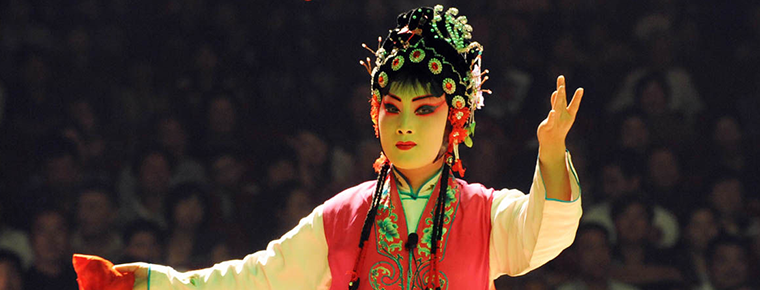
-
Shenyuan Scenic Spot Lu Xuns Hometown
Shenyuan is a national 5A scenic spot, located in Chunbolang, Yuecheng District, Shaoxing City. It is a famous garden in Song Dynasty. Shenyuan has a history of more than 800 years..
Views: 119 Time 2018-12-07 -
Mingyue Mountain
Mingyue Mountain: National tourist resorts, National Scenic spots, national AAAAA tourist attractions, National Forest parks, national geological parks, National Natural heritage, home of hot springs .
Views: 214 Time 2018-12-08 -
Banyan Tree Shanghai On The Bund
Shanghai, one of the largest cities in the world, has a vibrant urban atmosphere, impressive urban skyline and rich and colorful culture. Located in the center of the city and resting on the Bank of H.
Views: 485 Time 2018-12-16 -
Cuiyun Lang Scenic Area
Cuiyun Corridor, also known as "Huangbai Avenue", is a green corridor composed of nearly 10,000 green roads and ancient cypresses. It is the oldest and most well-preserved ancient road traff.
Views: 110 Time 2019-01-06 -
Restoration Techniques of Ancient Architecture
Ancient buildings are an important part of historical relics in China. Protecting, restoring and renovating ancient buildings is one of the important tasks in the protection of cultural relics..
Views: 108 Time 2019-05-01 -
Making Skills of Filament Mosaic
Silk mosaic is one of the traditional handicraft techniques in China. Gold, silver and copper are drawn into silk, and various decorations such as jewelry and utensils are made by various techniques..
Views: 138 Time 2019-05-04 -
Firing Techniques of Jizhou Kiln Ceramics
Jizhou kiln is a treasure of the traditional Chinese ceramic crafts. As a world-famous comprehensive ceramic kiln in Jiangnan (Ji'an, Jiangxi), it has strong local style.
Views: 140 Time 2019-05-05 -
Lv Opera
Lv Opera, also known as masqueraded Yangqin and Qinxi Opera, National intangible cultural heritage, one of the eight major Chinese operas, Shandong's most representative local operas, is popular in mo.
Views: 149 Time 2019-05-15 -
Munaozaiwa
In May 2011, Munaozaiwa declared by Dehong Dai Jingpo Autonomous Prefecture of Yunnan Province was listed in the third batch of national intangible cultural heritage list with the approval of the Stat.
Views: 111 Time 2019-06-06 -
Qianshan Temple Music
Qianshan, located 20 kilometers southeast of Anshan City, Liaoning Province, is one of the most famous scenic spots in the country. In the northeast, Qianshan is as famous as Changbai Mountain in Jili.
Views: 152 Time 2019-06-10 -
Four strands
Four-strand string, also known as four-strand string, two-strand string, five-tune string and five-tune tune tune tune, is one of the ancient traditional local operas in China. It originates from Julu.
Views: 387 Time 2019-06-16 -
Legend of Su Xian
The legend of Suxian is a local folklore with a long history. Su Xian, Ming Lian, from Guiyang. Su Da lost his father in his early years and depended on his mother for his life. One year, the plague w.
Views: 197 Time 2019-06-17
